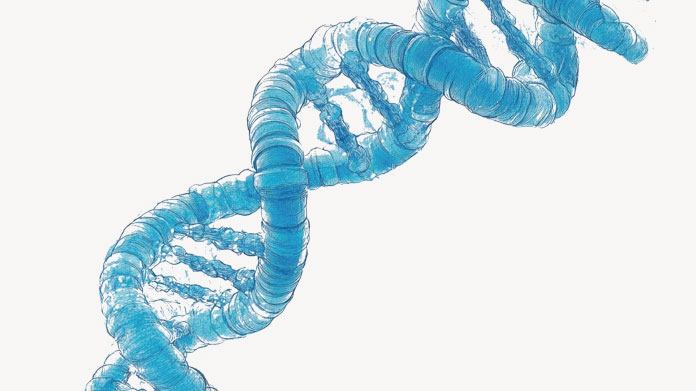Everything you need to know about vitamin E, tocotrienols and tocopherols!
Getting plenty of vitamin E? Of course you are! But, wait a minute. This vitamin is more complex than it seems. What exactly does it do? Which form should you take? What is the difference between tocopherols and tocotrienols?

What does vitamin E do?
Vitamin E - like all vitamins - plays an essential role in the body. Stored in adipose tissue, it has significant antioxidant properties and is a highly-effective free radical scavenger. It protects the body’s cells from harmful oxidative stress and degeneration, thus fighting the effects of ageing. It is also involved in many metabolic processes (neuromuscular, for example) as well as in regulating cell growth.
What are the benefits of vitamin E?
As a result of the very many studies conducted on vitamin E, we now know that it protects against cardiovascular disease by preventing the formation of blood clots and reducing levels of ‘bad’ LDL-cholesterol. It may thus lower the risk of heart attack and stroke. Other studies have demonstrated vitamin E’s benefits in preventing certain forms of cancer (such as prostate cancer in smokers), and infectious diseases (via the immune system). Last but not least, a study published in the report of the American Psychiatric Association suggests vitamin E has a mildly preventive effect in early Alzheimer’s disease.
Which foods contain vitamin E?
Vitamin E is readily available from the diet – vegetable oils such as sunflower, rapeseed and olive oil are all good sources. It is also present at beneficial levels in nuts such as almonds and hazelnuts and in dark green leafy vegetables, particularly cabbage. What is important in ensuring a good intake that meets your daily requirements (12mg/day for adults) is to eat a variety of foods rich in vitamin E. By way of example, one tablespoon of sunflower oil (approx. 15ml) provides 6mg of vitamin E, and the same quantity of wheat germ oil provides 21mg.
What are the consequences of a lack of vitamin E?
Relatively rare in humans, vitamin E deficiency is generally only seen in people with gastrointestinal malabsorption diseases (for example, Crohn’s disease). That doesn’t mean, however, that everyone else is consuming enough vitamin E to meet their needs. A study conducted in the US and Canada, published in the Journal of the Academy of Nutrition and Dietetics, showed that the vitamin E requirements of Americans were not being totally met by their diet. Deficiencies can manifest as muscular and neurological problems.
Tocotrienols and tocopherols: what’s the difference?
The term ‘vitamin E’ actually covers eight different compounds: four tocopherols (alpha-, beta-, gamma- and delta-tocopherol) and four tocotrienols (alpha-, beta-, gamma-, and delta-tocotrienol). Tocotrienols are distinguished by their three double bonds. With a greater number of unsaturated bonds, they penetrate more easily to the heart of the body’s cells. These double bonds also increase the molecules’ antioxidant capacity.
Tocotrienols and tocopherols: which should you choose?
Of all the forms of vitamin E, alpha-tocopherol is the most abundant in the body. However, in order to fully benefit from the vitamin, we need to ingest all its different compounds. Though tocotrienols are less well-known than tocopherols, research suggests their properties may be highly beneficial for our health. An American study from 1995 showed that tocotrienols may reduce the risk of atherosclerotic blockage in the carotid artery. According to several studies conducted in the 1990s, they may also be able to control and reduce cholesterol produced by the liver, a property not shared by tocopherols. The problem is that tocotrienols are much rarer than tocopherols and are therefore less available in supplement form.
What’s the difference between natural and synthetic forms?
Vitamin E is available in two forms – natural (as provided by the diet and by supplements) or synthetic (provided by supplements only). The natural form is better absorbed by the body – its bioavailability is up to twice that of its synthetic counterpart. You’d need to take 1.5-2 times more synthetic vitamin E to obtain the same effects. Note too that most of the vitamin E in capsule form – whether natural or synthetic – consists primarily of tocopherols, particularly alpha-tocopherol. It’s therefore well worth reading the labels of vitamin E supplements carefully to establish the exact composition. Ideally, they should contain all eight compounds, or at least all four tocopherols. Another point worth noting is that vitamin E acts synergistically with other antioxidants and it is therefore beneficial to combine it with vitamin C.
Keywords
56 Days
Very happy with the order and the…
Very happy with the order and the prompt team's response to an identified issue with my order.
KUQI Fatmir
63 Days
15 + years as a customer
I have been using their products for over 15 years as I find both the quality and pricing excellent.
Del Chandler
65 Days
Good quick delivery
Good quick delivery
Timothy O Shea
66 Days
Good service
Good communication following order. Product came within the time frame and was well packaged. The only confusing thing I found was in checking out. For some reason it is not clear how to do so and the current system should be improved.
Joe O Leary
75 Days
Simple and fast.
Simple and fast.
Nina
76 Days
Great product was definitely what is…
Great product was definitely what is says and arrived on without issue
customer
82 Days
I love reading those product facts on…
I love reading those product facts on Supersmart.com. Effective health products making permanent changes to my blood-work results and testes. However, I also have to order capsules from other websites.
NORDGULEN Olav
85 Days
Great products
Great products Very easy to choose, to order… and to get at home
Federica mastrojanni
87 Days
Service rapide et bons produits
Service rapide et bons produits
customer
88 Days
Good products and fast delivery
Good products and fast delivery
Trusted
93 Days
Does what it says on the can
I believe in this product Made to highest standard The ordering process is straightforward Delivery time prompt Excellent product, excellent service Happy customer ❤️
Sheba Kelleher
98 Days
Excellents produits
Excellents produits. Rien à dire si ce n'est qu'ils sont très chèrs.
MJS_France
101 Days
Very good supplement
Very good supplement
Glaveash
102 Days
Supersmart supplements are really…effective
Supersmart supplements are really effective and have helped me and family members and friends to improve their health including some of us with severe health problems including some with no existing medical treatment.
Anne Georget
103 Days
SuperBig Supersmart
SuperBig Supersmart
Pierre




Jonson M.
13/11/2020
thankes for great informatin but the most important to Know there are many Signs of vitamin E deficiency such as : Muscle weakness Walking difficulty Numbness and tingling in arms Vitamin E is needed for night vision Vitamin E for muscle cramps Vitamin E immune system Vitamin E for dry skin and hair loss Vitamin E for wounds You have a weak digestive system Ability to dissolve a fresh clot